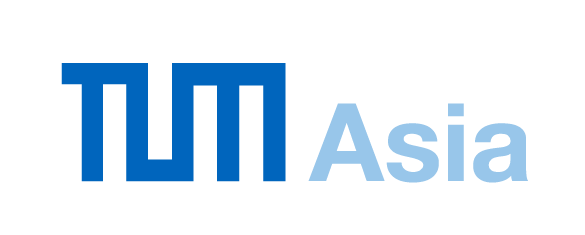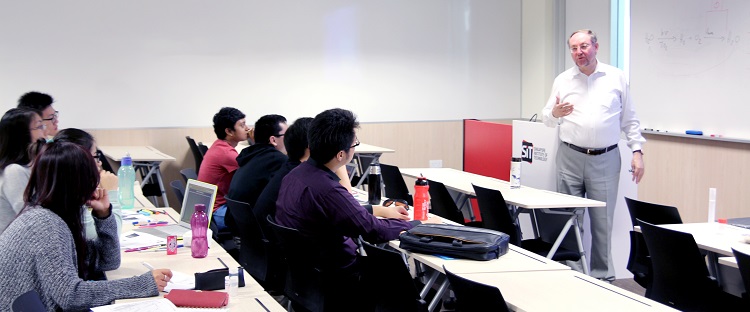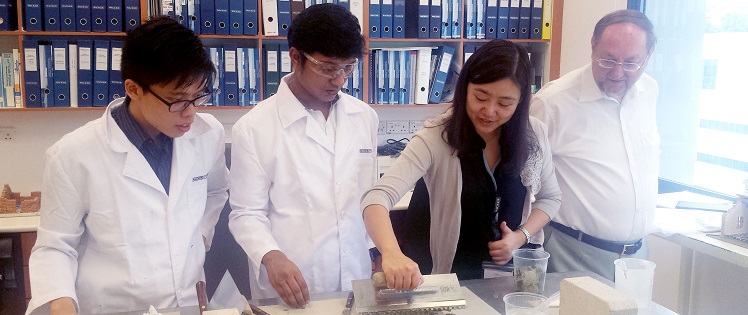Prof. Dr. Johann Plank has taught at TUM Asia for over 10 years, ever since the Master of Science in Industrial Chemistry programme was offered in Singapore. Like many other TUM professors, he has many years of experience working in the industry and he teaches what he knows best, based on real life examples of what he has experienced first hand. Professor Plank specialises in construction chemicals, such as cement, and he highlights the importance of such fields to his students in various ways.
Q: Hi Professor Plank, can you tell us more about your work in the area of cement?
Prof Plank: I teach about cement and construction materials such as concrete and dry mix mortar. My lectures consist of two parts, cement and chemicals used in cement. Students always wonder why a very well-known material like cement is very complex. When cement reacts with water, it becomes complicated to analyse. When cement hydrates it forms certain mineral faces, some with complicated composition and depending on environmental conditions, and how you mix it, you get different products. Cement is a challenging material and though it is cheap, it is wonderful. It is the largest man made product in the world and we use 400 billion tonnes a year worldwide. Cement is largely used in countries that build a lot of infrastructure – such as houses and buildings. This is why cement is important.
Q: Do your students share the same interest as you do with regards to cement?
Prof Plank: Not always. Students like to pursue fields such as Biotech, Nanotech, and I.T. They do not realize the prospects that cement can bring. There are few experts in the cement field. Thus, a student who is interested in cement will easily find a job. Many students give up when it comes to cement as it is a highly complex and challenging material. Academics do not offer much on it since it is complicated and requires more than two to three years to understand it. Having worked for a chemical company for 20 years, I am familiar with the market and applications of these products, which is what I teach to my students.
Q: How can students considering a career in construction chemicals get a glimpse of the industry?
Prof Plank: I try to pique their interest by organising site visits. My students and I are visiting Baker & Hughes and Wacker Chemicals this month, where we are hosted by ex-students of mine. As previously mentioned, students are not aware about the fields of cement because it is not popular and requires qualified experts. These field trips make the class come alive and show them the importance of construction chemistry.
Q: Is it then necessary for a student who would like to pursue a career in chemistry to obtain higher qualifications?
Prof Plank: It depends. The difference between the qualifications can be big sometimes. In Europe, people expect those studying Chemistry to have a doctorate (PhD). This is because you always start with research and development, then you become a manager of technicians, thus you need to know how to work independently – which is something you learn in a PhD. In Singapore, skills are more looked upon compared to degrees but that is changing. Of course, with a Master degree, you have more opportunities and you may rise above the competition. An example would be an ex-student of mine who was a manager of an R&D center in a German company. It was later merged with a larger company, but she got the job as the overall manager because she was the only one that had a PhD.
—
Professor Plank teaches in the Industrial Chemistry programme, offered at TUM Asia. Find out more about the degree in Industrial Chemistry, offered by two of the world’s top universities (Technical University of Munich & National University of Singapore).
More about the Master of Science in Industrial Chemistry >>
Application for the August 2017 intake is open, apply here >>



